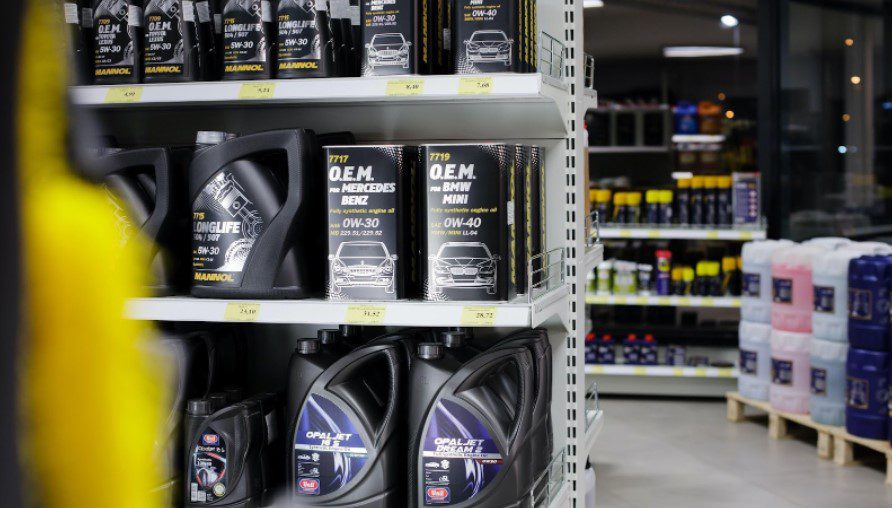Choosing the right engine oil for your automobile can be a very daunting task. To make this process easier, most cars come with a manual that specifies the kind of motor oil suitable for their engine.
Just like we have different engines for different kinds of automobiles, we also have varieties of motor oils. These oils have specifications that could be difficult to understand. These specifications, which reveal the oil viscosity, are determined by the current temperature and the makeup of the engine.
5w20 and 10w40 are both multi-grade oils but with different viscosities at different temperatures. While 5w20 is ideal for use during cold start and winter, 10w40 is best suited for use during summer and when the engine is running.
This article will explain in detail the differences between both engine oils, illustrating scenarios where both oils can be used and the kind of cars best suited for them.
5w20 Oil Vs 10w40 oil: What Is The Difference
| Features | 5w20 Engine Oil | 10w40 Engine Oil |
|---|---|---|
| Viscosity at 0°C | 5 | 10 |
| Viscosity at 100°C | 20 | 40 |
| Startup performance at cold temperature | Greater | Lesser |
| Leakage or wear protection at operating temperature | Lesser | Greater |
| Flow at low temperature | Quick | Slow |
| Automobile suitable for use | Light-duty petrol and gasoline engines, passenger cars | Motorcycles, diesel engines, medium and heavy-duty gasoline engines, older engine |
5w20 vs 10w40 defined
5w20 is a low viscosity multigrade winter oil. It is multigrade in the sense that it can operate under two temperatures, unlike single grade oil which operates only at a single temperature.
The code number seen before and after the ‘W’ indicates the viscosity rating at different temperatures. The 5w indicates the viscosity of the engine oil at a cold temperature of 0°C or during an engine startup in cold. The 10 viscosity indicates the viscosity of the engine oil at 100°C or when it is in operation.
10w40 is also a multigrade oil but with higher viscosities. It is high-performance engine oil, ideal for use in high mileage cars.
Proper use of motor oil 5w20 and 10w40
As a rule, the lower the viscosity at low temperature, the faster is it for the oil to flow through engine parts. Such kinds of engine oils are thinner. This makes 5w20 oil a better oil than 10w40 when it comes to startup performance, as the latter makes the engine take a longer time to start.

Also, thinner oil viscosity reduces friction and drag across engine parts such as the crankshaft and piston. They offer better fuel economy due to the reduced release of exhaust. They also lubricate and protect the car engine better at cold temperatures and during winter.
10w40 being a thicker oil will give better protection to the engine and help seal leakage faster at operating temperature. They are also good alternatives for older engines or cars with high mileage engines.
Can you use 10w40 instead of 5w20?
Just so we are clear, most manufacturers do recommend a specific motor oil for use in the engine of an automobile. For proper functioning of any engine, it is best one use the engine oil assigned to it.
10w40 oil has a thicker viscosity, which helps to seal leakage in older vehicle engines. On the other hand, 5w20 oil has a thinner viscosity which is ideal for a quick start in cold temperatures. Using 10w40 oil on a 5w20 engine can cause internal damage to your car engine, and also increase its fuel consumption.
Will 10w40 hurt a 5w20 engine
Using a 10w40 oil on a 5w20 engine is not an ideal decision. 10w40 oil is too thick for a cold startup on the engine and could lead to the wear of engine parts.
Apart from the damage to engine parts, using 10w40 oil on a 5w20 engine will lead to energy wastage and reduced fuel economy.
Ford Escape 5w20 vs 10w40
Ford Escape is one SUV that can take any of the three main types including, conventional, synthetic, and synthetic blends. However, synthetic oil is the most appropriate oil to be used in a Ford Escape car engine, as it keeps it clean and boosts its performance in both cold and hot weather.

For most Ford Escape models, the best engine for its use is determined by its vehicle make, engine type, and year. However, most manufacturers recommend the 5w20 oil for use on the newer model of the Ford Escape engine.
A Lot of people consider 10w40 engine oil viscosity to be too thick to be used on Ford Escape engines. The best thing is to stick to the oil viscosity recommended by your manufacturer or consult your mechanic.
What is the best car for 10w40 or 5w20?
Due to the low viscosity of 5w20 engine oil, it is suitable for use in passenger cars, light trucks, and gasoline engines. This oil flows faster in car engines, helping to protect and lubricate the engine parts better in cold temperatures.
Cars such as Mitsubishi, Dodge, Ford, Toyota, Honda, Acura, Mazda, Mercury, Lincoln, Chrysler, Jeep, and Toyota come with 5w20 specifications.
In addition, Nissan, Volvo, Buick, Pontiac, Saturn, Lexus, Subaru, GMC, BMW, Chevy, Jaguar, and Cadillac also manufacture engines that are meant to run with 5w20 oils
10w50 oil on the other hand is better suited for high mileage car engines, motorcycles, medium and heavy-duty gasoline engines, and as an alternative for use in older engines.
Conclusion – 5W20 Vs 10W40 Oil: What’s the Difference & Which Is Better?
Ultimately, we can’t categorically state that any of the engine oil is better than the other. It all depends on the temperature, location, vehicle make, and specified viscosity rating by the manufacturer.
While 5w20 has a thinner oil viscosity and is suitable for use in low temperature, and cold startup, 10w40 engine oil is best for high mileage cars.
Using these oils in their appropriate engine will not only help to improve the efficiency of the engine but also prevent wear and damage to the engine.
Stick with the oil viscosity recommended by your car manufacturer. Except when necessary, you should visit your mechanic before using an oil viscosity that is not recommended by the manufacturer.
Related Articles:
